My small business is owed money by an individual in the UK. How does a small business recover debt from an individual or a sole trader?
REGISTER YOUR OWN COMPANY HERE
As of 1st October 2017 a new Pre-action Protocols for debt claims became law in the UK. The new pre-action protocols apply to “any business (including sole traders and public bodies) claiming payment of a debt from an individual (including sole trader).”
This means that the process for making a claim for overdue debt has changed, and it may affect you! It is important to understand what to do if someone owes you money, so you have the best chance of recovering it.
1. Send a ‘Letter Before Action’ to the debtor.
Make sure the date is clearly stated at the top of the letter because the new protocol means that debtors now have 30 days from the date of the letter to respond before court proceedings can begin.
- The letter must also include details of the debt such as:
– Who owes it and who they owe it to
– What the debtor owes for
– The method of payment accepted
– State whether the debt arose by written or verbal communication - Additionally also include;
Any written documentation (contract, emails, invoices) demonstrating the payment owing, the date of the agreement and the parties involved.
OR
- If the agreement was verbal:
– Who made the agreement?
– What were the specifics agreed/when/where?
– And a transcript of what was verbally said as close as is possible. - You must also include an up to date statement of accounts for the debt.
If the statement of account is recent but not up to date, include details of any interest charges or admin fees incurred in the time between the statement of account and the present. Detail the charges incurred in the Letter of Claim if there is no statement of account available.
- Wait for the debtor to respond
The debtor has 30 days from the date stated on the “Letter Before Action” before can start court proceedings. The protocol also implies to be lenient. For example, to allow a couple of business days after the 30-day period ends in case the debtor has sent their response towards the end of this time.
2. Communicate with the Debtor
The debtor must send a reply form detailing whether they dispute the claim, if they are seeking advice or if they are unable to pay.
They can request documents containing evidence of the debt owed from you. The debtor may provide documents of evidence to dispute the claim. e.g. receipt of payment made that the creditor did not list in the Letter of Claim.
You must allow “a reasonable period of time” for the debtor to seek advice. If doing this means going over the 30-day period, the debtor must detail why in their reply form.
This is simply an information exchange to clear up any discrepancies between both parties to enable you to understand each others’ position.
If there are any documents that are unavailable, the said party must detail why it is unavailable.
3. Mediation
The aim of the new pre-action protocols is to try and resolve disputes without the need for legal action. Therefore, hiring a civil or commercial mediator to resolve a dispute is highly beneficial. Mediators make it possible for people in dispute to progress without the need for court.
Taking legal action is time consuming and costly and there is no guarantee you will win your case. So settling the dispute with a mediator beforehand is quicker and more cost effective for you and the debtor.
4. Payment Plans
If the debtor is willing to communicate, payment plans are a reasonable way for you to get your money. Payment plans agreed in writing formalise how much the debtor must pay you over a certain amount of time, until the debt is paid in full.
The regular payments cover the debt owed, plus interest and late payment fees which are usually paid off monthly or weekly. The creditor must consider the debtor’s situation (e.g. income and expenditure) and agree a reasonable payment plan solution.
5. “Take Stock”
The protocol suggests for each party to assess their position to come to an agreement to avoid taking court action.
If you are happy that the protocol has been followed, court action can commence under the following circumstances;
– A reply form has not been sent back to you within 30 days.
– If the debtor has responded to your Letter of Claim but you are not in agreement. You must then give 14 days’ notice before proceeding with court action. TRADE & LEGAL BUSINESS LAW CONSULTANTS
Disclaimer: This page contains affiliate links. If you choose to make a purchase after clicking a link, I may receive a commission at no additional cost to you. Thank you for your support!





